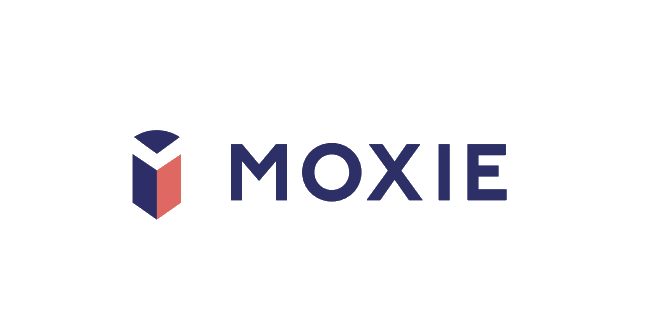The Postdigital Era and Postplagiarism: Unpacking Complexities in Hybrid Human-AI Collaboration
The term "postdigital" highlights a transformation in our understanding of the relationship between digital technology and human life (Jandrić & Ford, 2020; Jandrić & Hayes, 2020). At Moxie (formerly Academic Insight Lab), we believe in the potential of this integration, particularly the use of collective intelligence that goes beyond individual minds to networks of people and tools. This philosophy guides our approach to hybrid human-AI research and academic writing, promoting ethical collaboration with AI to work smarter, not harder.
Postdigital in Research and Writing: Hybrid Human-AI Collaboration
The postdigital perspective transcends mere technical innovation, focusing on human-AI collaboration (Williamson, 2018). Technological advancements, particularly in the field of artificial intelligence (AI), have become an integral part of the modern landscape. These developments are not transient phenomena but enduring shifts that are reshaping our world. Therefore, it is imperative for researchers, academics, and professionals to recognize the significance of AI and adapt to this evolving paradigm. Embracing these technologies is no longer optional; it's an essential step in staying relevant and competitive in today's rapidly changing environment. One example of that is the use of large language models (LLMs) as partners (not just tools) that help us work smarter.
One real-world example of postdigital collaboration in research and writing is the use of AI in medical diagnostics. AI models are now being integrated with human expertise to analyze vast amounts of data, including medical images, patient histories, and genetic information. To illustrate, IBM's Watson has been employed to assist oncologists in treatment planning by sifting through medical literature and comparing patient-specific information (Liu et al., 2018). This collaboration doesn't replace the human expert but augments their capabilities, leading to more precise and personalized treatments.
Beyond examples, analogies also help us make sense of new paradigms. An analogy that could inform our understanding of postdigital is the relationship between a skilled musician and a finely tuned instrument. In a traditional view, the instrument is merely a tool that the musician uses. In the postdigital perspective, the relationship is more symbiotic; the musician and the instrument work in harmony, each enhancing the capabilities of the other. Similarly, the integration of AI with human intelligence is like a duet between a musician and their instrument, where each part contributes to a greater whole, producing a richer, more nuanced performance.
Postplagiarism
As we embrace AI, particularly LLMs, to enhance collaboration and efficiency, we must also grapple with the complexities of originality and ethics. This intersection leads to a fascinating development in the academic field known as postplagiarism. Postplagiarism extends our understanding of originality (Eaton, 2023) and necessitates guidance in navigating this intricate landscape. Such changes in academia are leading to a world where ethical collaboration with AI is not only accepted but will become essential as these collaborations evolve and become more prevalent.
Takeaways
The postdigital era, characterized by interconnected human and AI technologies, presents new possibilities for knowledge creation. Moxie is at the forefront of this movement, fully embracing these concepts and promoting ethical collaboration with AI, specifically large language models. We are committed to redefining research, writing, and originality, guided by a belief in working smarter, not harder.
Join us in exploring the multifaceted postdigital age and engaging in a future where human intelligence and AI work in harmony.
➡️ Join our free webinar on September 14th: HybridHorizons: Exploring Human-AI Collaboration in Research Writing, and embark on a transformative journey into the postdigital era of academic publication. By the end of the webinar, you will understand how to navigate the complex landscape of postplagiarism and utilize human-AI hybrid techniques in your research writing.
Our webinars are recorded and stored on our YouTube channel.
Sources
Eaton, S. E. (2023). Academic Integrity in the Age of Artificial Intelligence [PowerPoint slides]. https://prism.ucalgary.ca/server/api/core/bitstreams/72095f19-34fe-43ec-a0b6-c16fc63c6103/content
Jandrić, P. and Ford, D. (2020). Postdigital ecopedagogies: genealogies, contradictions, and possible futures. Postdigital Science and Education, 4(3), 692-710. https://doi.org/10.1007/s42438-020-00207-3
Jandrić, P. and Hayes, S. (2020). Postdigital we-learn. Studies in Philosophy and Education, 39(3), 285-297. https://doi.org/10.1007/s11217-020-09711-2
Liu, C., Liu, X., Wu, F., Xie, M., Feng, Y., & Hu, C. (2018). Using artificial intelligence (Watson for Oncology) for treatment recommendations amongst Chinese patients with lung cancer: Feasibility study. Journal of Medical Internet Research, 20(9), e11087. https://doi.org/10.2196/11087
Williamson, B. (2018). Brain data: scanning, scraping and sculpting the plastic learning brain through neurotechnology. Postdigital Science and Education, 1(1), 65-86. https://doi.org/10.1007/s42438-018-0008-5
